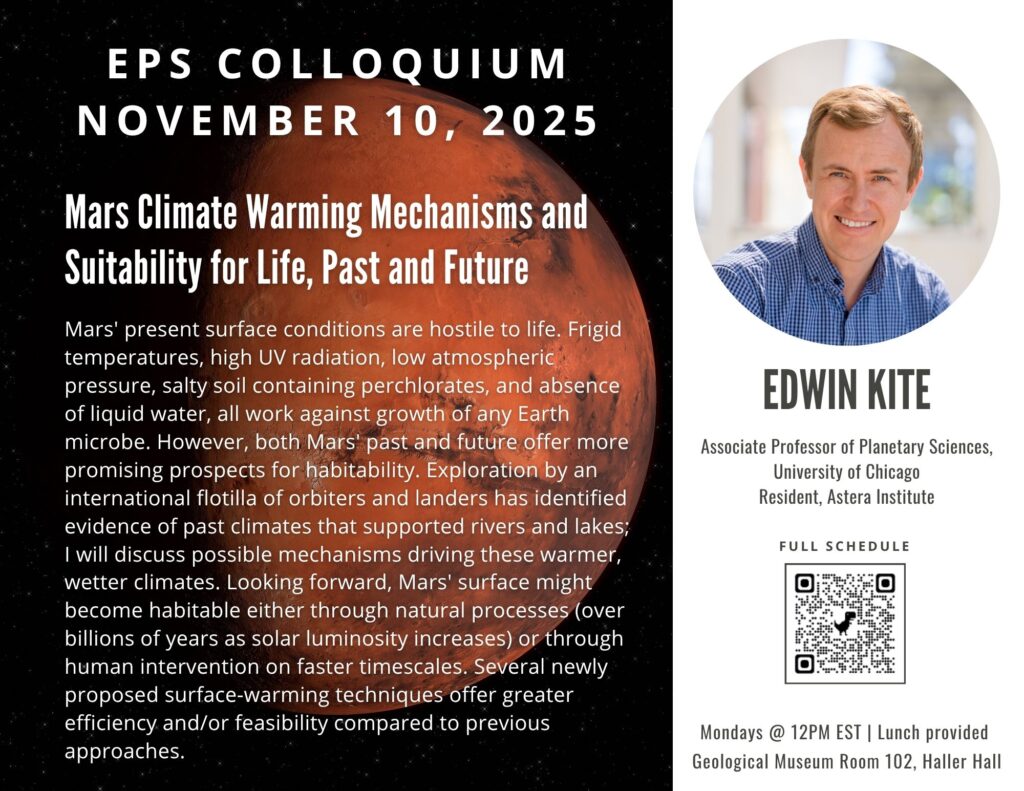EPS Colloquium – Edwin Kite, University of Chicago
Mars Climate Warming Mechanisms and Suitability for Life, Past and Future
Mars’ present surface conditions are hostile to life. Frigid temperatures, high UV radiation, low atmospheric pressure, salty soil containing perchlorates, and absence of liquid water, all work against growth of any Earth microbe. However, both Mars’ past and future offer more promising prospects for habitability. Exploration by an international flotilla of orbiters and landers has identified evidence of past climates that supported rivers and lakes; I will discuss possible mechanisms driving these warmer, wetter climates. Looking forward, Mars’ surface might become habitable either through natural processes (over billions of years as solar luminosity increases) or through human intervention on faster timescales. Several newly proposed surface-warming techniques offer greater efficiency and/or feasibility com-pared to previous approaches.
Here, we emphasize temperature increase, which is a necessary (but insufficient) condition for surface habitability for photosynthetic life; many additional challenges remain.
The question of whether humans should warm Mars has been debated for decades, with arguments both for and against. Currently, we lack sufficient information to make an informed choice. For example, the need to do more to show that life is absent on other worlds before making them more habitable to life from Earth is particularly true for Mars. Many unknowns remain about Mars atmosphere-surface exchange, and these would need to be resolved before any substantial climate modifications. Thus, further exploration, including a sample return mission, is on the critical path toward making a choice between possible futures for Mars.
To be added to the EPS colloquium mailing list, please contact Caroline Carr at carolinecarr@fas.harvard.edu

Edwin Kite is an associate professor with tenure at the University of Chicago, a Resident at Astera Institute, and a member of the science team for the the Mars “Curiosity” rover. Following undergraduate work at the University of Cambridge, Kite moved to UC Berkeley for a PhD in the Earth and Planetary Science Department. Prior to joining the University of Chicago, Kite held prize postdoctoral fellowships at Caltech and at Princeton. Kite is a co-recipient of the Newcomb Cleveland Prize and a recipient of the AGU Greeley Early Career Award. Kite’s research interests include Early Mars, small-radius exoplanets, and Mars terraforming

